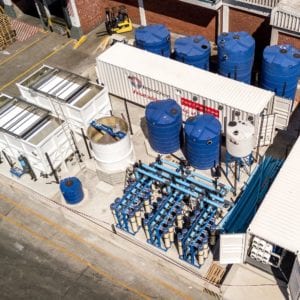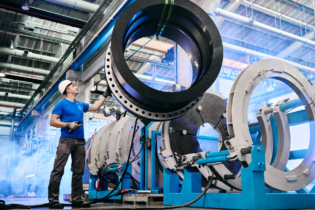Water is a hot topic at the moment, largely due to the ongoing water crisis in the Western Cape where businesses and consumers are taking extraordinary measures to keep the taps running.
While consumers are required to consume no more than 50 ℓ per day, businesses are looking at sustainable solutions that relieve pressure on the system, while ensuring their ongoing commercial viability in a particularly challenging economic climate. At ImproChem – the business of AECI’s Water & Process pillar – a rapid deployment strategy has been put in place to facilitate the planning, design, construction and commissioning of desalination plants that are capable of producing over1 MLD of water in just 16 weeks – the same amount of time that it takes to assemble a Boeing 747. To date, a number of successes have been recorded, such as desalination plants for the Oceana Group, the Sea Harvest Group and Sonnendal Dairies. More plants are in the pipeline, including for healthcare and hospitality organisations.
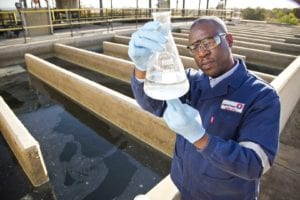 Products and services
Products and services
As the largest water treatment company in sub-Saharan Africa, ImproChem offers a comprehensive range of water management products and service, including:
- cooling water management
- membrane treatment
- boiler system management
- industrial influent water, public water and wastewater chemical treatment
- process water treatment
- package plants and standard equipment
- custom-engineered solutions.
per hour. Containerised plants are fully automated, tested at ImproChem’s factory and easy to install on-site. They offer flow rates of between 6 m3 per hour and 120 m3 per hour. ImproChem recently manufactured a containerised water treatment plant with a capacity of 1 MLD of water for the eThekwini Municipality in KwaZulu-Natal. In keeping with its rapid deployment strategy, it took just 10 days from start
to finish. Medium-sized engineered plants are designed to specification, usually with flow rates of 10 m3 per hour to 250 m3
per hour.
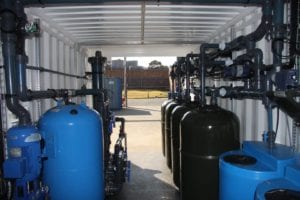 Potable plant processes
Potable plant processes
Depending on the raw water composition, potable plants may contain the following unit processes:
- flocculation and sedimentation
- aeration/dissolved air flotation
- filtration (mixed media or activated carbon)
- softening (cold lime softening or ion exchange)
- membrane (ultrafiltration, nanofiltration, reverse osmosis or membrane bio-reactors)
- sterilisation (chlorination, ultraviolet or chlorine dioxide).
ImproChem’s sewage water treatment solutions include sludge dewatering and containerised
sewage plants.
dewatering operations. At the same time, its ‘plug-and-play’ sewage systems are capable of handling and treating sewage generated by up to 400 people at 150 ℓ per capita per day. To ensure that customers get the maximum return on their investments, ImproChem also offers a manage, operate and maintain (MOM) programme. Among the many benefits are:
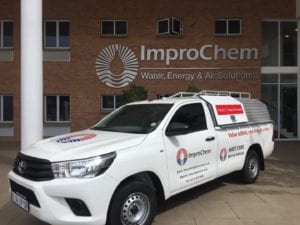 Cost reduction
Cost reduction
- reduced process downtime, resulting in fewer equipment breakdowns
- reduced overtime costs and more economical use of personnel due to working on a scheduled basis instead of a crash basis to repair breakdowns
- reduced cost of repairs by fewer secondary failures – when parts fail in service, they usually damage other parts
- reduced product rejects, rework and scrap due to better overall equipment condition
- minimised unnecessary downtime.
- increased plant availability
- improved plant reliability (planned versus unplanned work)
- consistent service delivery
- sustainable quality
- maximum asset utilisation and longevity improvement.
- compliance with legislation and regulation
- reduced breakdowns to minimise business risks.
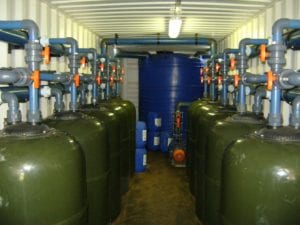 For existing plants, the methodology is different and involves the following steps:
For existing plants, the methodology is different and involves the following steps:
- a site assessment from a process and maintenance approach
- efficiency of the plant operationally and mechanically
- recommendations in terms of MOM personnel, optimal treatment for the plant, maintenance requirements for the plant, logistics and support needed for running the plant such as remote monitoring and alarming and mobile workshops
- training and coaching.
on display.


